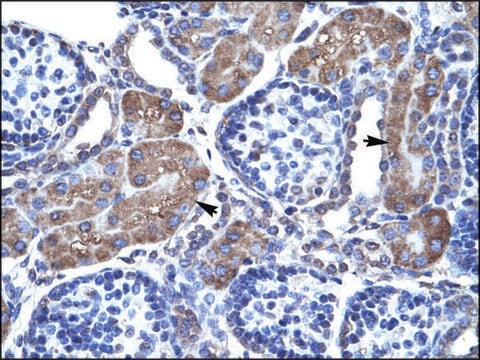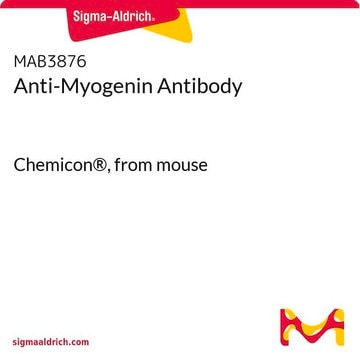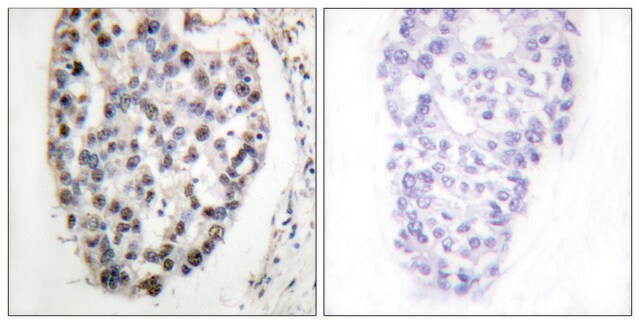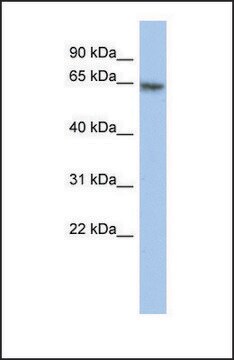MAB3878
Anticuerpo anti-MyoD1
clone 5.2F, Chemicon®, from mouse
Sinónimos:
Anti-MYF3, Anti-MYOD, Anti-MYODRIF, Anti-PUM, Anti-bHLHc1
About This Item
Productos recomendados
biological source
mouse
Quality Level
antibody form
purified immunoglobulin
antibody product type
primary antibodies
clone
5.2F, monoclonal
species reactivity
rat, mouse, chicken, human
manufacturer/tradename
Chemicon®
technique(s)
immunocytochemistry: suitable
immunohistochemistry: suitable
immunoprecipitation (IP): suitable
western blot: suitable
isotype
IgG2a
NCBI accession no.
UniProt accession no.
shipped in
wet ice
target post-translational modification
unmodified
Gene Information
human ... MYOD1(4654)
Specificity
Immunogen
Application
Inmunohistoquímica en tejido congelado, fijado en formol e incluido en parafina: 2- 4 μg/ml.
Inmunocitoquímica
Inmunoprecipitación: 2 μg/ml de lisado de proteína
El usuario final debe determinar las diluciones de trabajo óptimas.
Target description
Physical form
Analysis Note
Músculo fetal, rabdomiosarcoma
Other Notes
Legal Information
¿No encuentra el producto adecuado?
Pruebe nuestro Herramienta de selección de productos.
Optional
Storage Class
12 - Non Combustible Liquids
wgk_germany
WGK 2
flash_point_f
Not applicable
flash_point_c
Not applicable
Certificados de análisis (COA)
Busque Certificados de análisis (COA) introduciendo el número de lote del producto. Los números de lote se encuentran en la etiqueta del producto después de las palabras «Lot» o «Batch»
¿Ya tiene este producto?
Encuentre la documentación para los productos que ha comprado recientemente en la Biblioteca de documentos.
Nuestro equipo de científicos tiene experiencia en todas las áreas de investigación: Ciencias de la vida, Ciencia de los materiales, Síntesis química, Cromatografía, Analítica y muchas otras.
Póngase en contacto con el Servicio técnico








